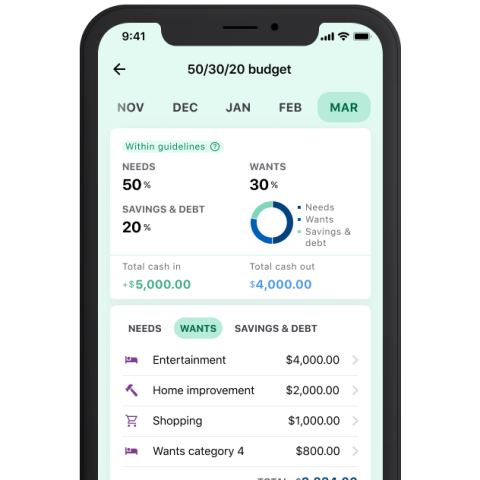Personal Finance Defined: The Guide to Maximizing Your Money

Many or all of the products featured here are from our partners who compensate us. This influences which products we write about and where and how the product appears on a page. However, this does not influence our evaluations. Our opinions are our own. Here is a list of our partners and here's how we make money.
What is personal finance?
Personal finance is a term encompassing all of the matters related to managing your money. It might refer to things as basic as tracking your spending and saving money — or as complicated as taxation and estate planning. (Note that this is just one of a few different types of finance.)
Why is personal finance important?
Dealing with money can be overwhelming. In fact, 4 in 5 Americans (80%) say they put off financial decisions, and 35% of those delaying those decisions say it’s because they feel overwhelmed at the thought of them. This is according to a June 2022 NerdWallet survey conducted online by The Harris Poll.
But take each element one facet at a time. Master that, then move on. Personal finance is important because it deals with four very critical stages of managing your lifestyle security: 1) Making money. 2) Saving money. 3) Building wealth. 4) Protecting assets.
These missions can overlap throughout your life. It's likely you've already accomplished some of the basics. Knowing that can give you confidence as you move to another task designed to maximize your money.
Examples of personal finance in everyday life
Personal finance is more than a textbook theory. It is the foundation of how you live your life on your own terms.
For example, manage your cash flow so that you have money to spare. Save for the future so you can explore career options — and not feel stuck in a job because you have a pile of bills to pay.
Knowing how personal finance works is empowering.
While 39% of Americans say they feel anxious when making financial decisions, according to the survey, 30% feel confident and 17% excited, suggesting it is possible to feel good when navigating your finances. Understanding how it all works is the first step in building that confidence.
13 fundamentals of personal finance
1. Making money. 2. Managing money. 3. Building a budget. 4. Saving money. 5. Credit cards and loans. 6. Borrowing money. 7. Your credit score. 8. Taxes. 9. Paying off debt. 10. Insurance. 11. Investing. 12. Starting or running a business. 13. Travel.
Many financial fundamentals can be accomplished on your own, with a bit of organization and a commitment to make the most of what you earn. Tax and estate planning, as well as investing, often call for professional help.

1. Making money
It's very likely that there are millionaires in your neighborhood who you would never suspect as being wealthy. They may make a lot less money than you would guess necessary to amass such a fortune.
Some people are mentally wired for frugality. Most of us have to work hard to set aside a few bucks. That's where the old saying, "it's not what you make, it's what you keep" comes into play.
Here are some key personal finance concepts related to that:
Net income
Your take-home income, or net pay after all deductions, is what you have to spend. It's the building block of your budgeting process. It’s essential to know the amount of money you'll receive after all insurance, taxes and benefits are taken out so you spend only what you really have in the bank.
Side income
Want to make money, but you’re not sure where to start? NerdWallet rounded up more than two dozen legitimate ways to make money — whether it's working at home or out and about — and listed each option based on how fast you can get started and get paid.
While most people prefer fast cash, don’t discount the “slow” gigs, as they may pay more in the long run.
2. Managing money
Banking
Nearly 2 in 5 (38%) Americans are likely to put off opening a new bank account or choosing a new bank, according to the survey. But deciding which bank accounts are best can help minimize your costs and maximize your savings.
Checking accounts
Learn more about checking accounts, one of the simplest types of accounts available to consumers.
Savings accounts
Get advice on savings accounts and find accounts with low fees and the best interest rates.
Certificates of deposit
Opening a certificate of deposit is a solid way to get guaranteed returns on your money with little risk. CDs tend to have the highest interest rates among bank accounts and are federally insured, unlike investments kept in stocks and bonds.
Renting versus buying a home
Should you rent or buy a home? Use our simple rent vs. buy calculator to find out which option is best for you.
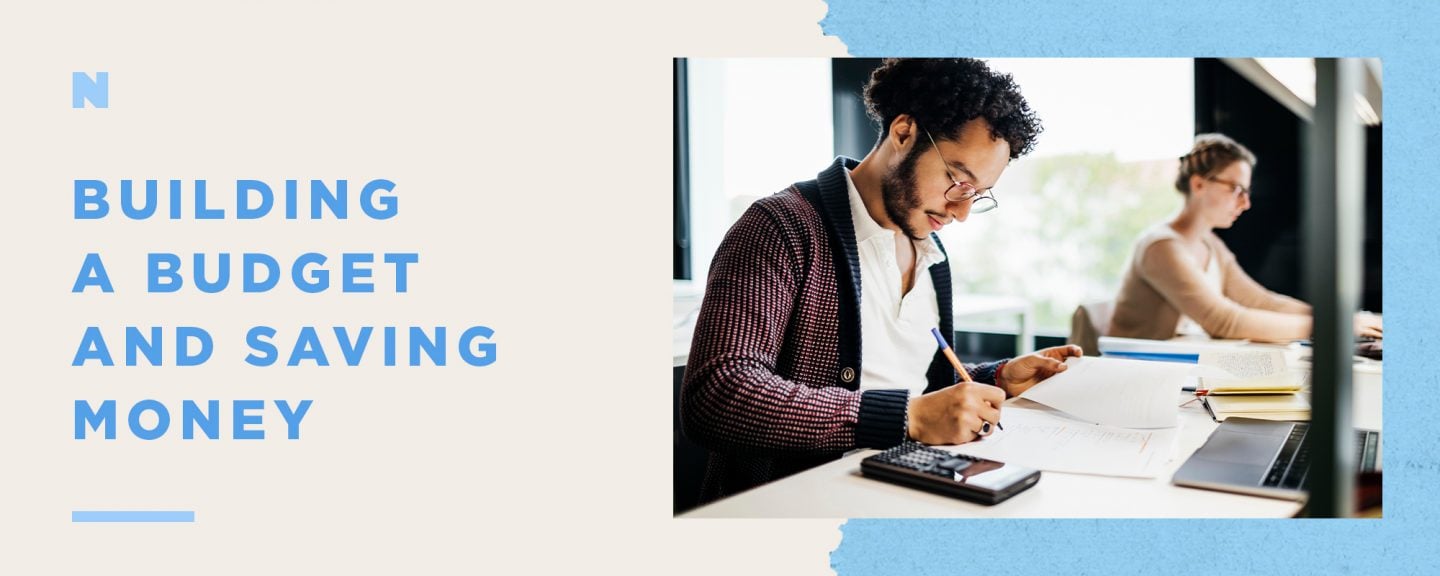
3. Building a budget
Budgeting systems are designed to help you understand and evaluate your relationship with money. While all share a common goal, they often use distinct tactics to get you there.
4. Saving money
Interest
Interest is the money you receive for loaning out funds, and it’s also the money you pay when you borrow funds. In a nutshell, it’s the amount charged for the privilege of using someone’s money.
Emergency fund
An emergency fund is money set aside to pay for large, unexpected expenses, such as:
Unforeseen medical bills.
Home-appliance repair or replacement.
Major car fixes.
Unemployment.
Health savings accounts
A health savings account, or HSA, is a handy way to save for medical expenses and reduce your taxable income. But not everyone can — or should — sign up for the kind of health insurance plan required to open an HSA.
Saving to buy a house
Figure out how much down payment you'll need, use money-saving hacks and keep savings in the right type of account. Here are five tips on how to save for a down payment on a home.
Saving for college
A 529 plan can be a great way to save for college if you know the rules and how to optimize your investment. A 529 plan is a type of savings and investment account in which money grows tax-free as long as the withdrawals are for qualified education expenses. They are named after a section of the IRS code.
There are two types of 529 plans. Get the details and see 529 plans listed by state.

5. Maximizing your credit cards
Finding the best credit cards is part art, part science.
No single credit card is better than all others in all categories — or for all people. But by understanding your options and asking the right questions, you can find the card that's the best fit for your spending habits and credit situation.
6. Borrowing money
Vehicle loans
Get help finding the right vehicle loan — and find options if you're having trouble. The NerdWallet Auto Loans hub has calculators and tips on affordability, down payments and fees.
Student loans
Should you refinance your student loans? If so, how can you find the right lender or the right payment plan? NerdWallet has compiled the resources you need to answer those questions and more.
Personal loans
Personal loans have fixed annual percentage rates, generally 6% to 36%. The loan with the lowest rate is the least expensive — and usually the best choice. Other features, including no fees, soft credit checks and whether lenders directly pay creditors if you’re consolidating debt, set some loans apart.
We spent many hours reviewing loans from over 30 personal loan companies to find the best online rates and loan features.
Mortgages
Easily compare and find the smartest mortgage for you. Whatever your homebuying goals are, we’ve got the tools, calculators, and nerdy know-how to help you tackle them.
Compare mortgage rates.
Get preapproved.
Calculate your mortgage payment.
Explore refinance options.
Estimate your home's value.
Find the best mortgage lenders.
Home equity
It is often said that homeownership builds wealth. So, what is home equity, and how can it enhance your net worth? Home equity is the current market value of your home, minus what you owe. You’re looking for a positive number. Any gain comes from: 1) Paying down the principal balance on your loan. 2) An increase in market value over time.
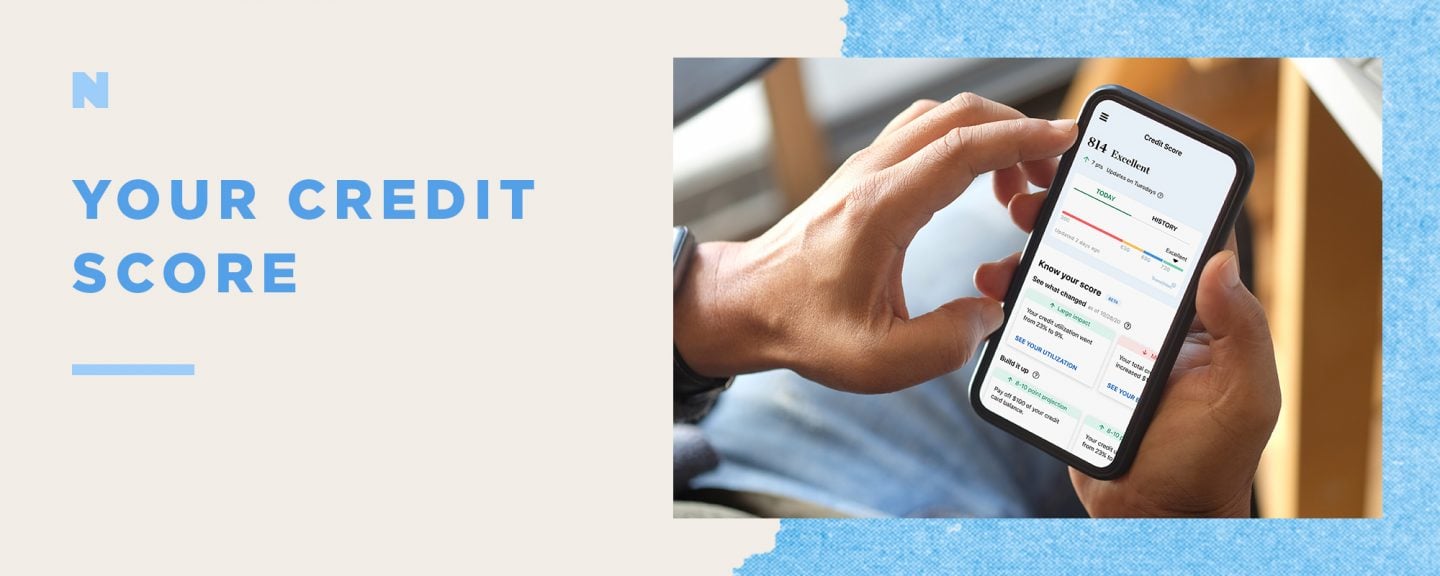
7. Your credit score
Credit score factors
A credit score is a number lenders use to help determine how risky it is to lend you money or give you a credit card. Your score plus things like your debt and income help lenders decide whether to approve your credit application and set the interest rate.
Two things matter most to your credit score: whether you pay bills on time and how much of your credit card limits you use (less is better).
How to build credit
If you don’t have a credit history, it can be hard to get a loan, a credit card or even an apartment.
But how are you supposed to show a history of responsible repayment if no one will give you credit in the first place?
Several tools can help you establish a credit history. Here's how:
It pays to keep watch on your credit history because it can affect how much you pay for car or home insurance, your ability to rent a house or an apartment, and even your chances of getting some jobs.
Monitoring your credit can be a little like checking your blood pressure to see how your new exercise program and diet are affecting it. You’re unlikely to see steady, unbroken progress, but it can let you know if you’re on the right track. A big, unexplained change in your credit score or reports should get your attention; it could signal identity theft or a mistake in your credit reports.
How to restore credit
Restoring damaged credit can be tougher than starting from scratch. You’re trying to show lenders and credit card issuers that despite slip-ups on your part or disasters you had nothing to do with, you’re very likely to make future payments as agreed. Consider these basic strategies for rebuilding credit.
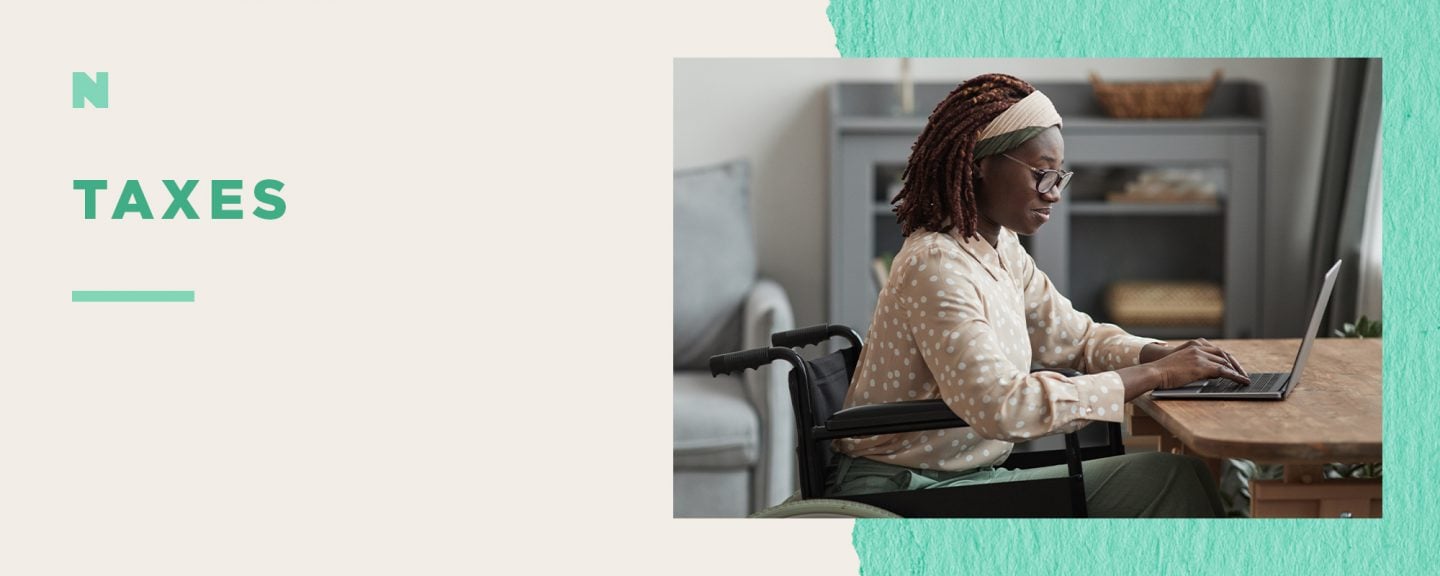
8. Taxes
Find federal income tax brackets or the best tax software, and calculate your tax bill — or refund — at the NerdWallet Taxes center. You can also track your federal and state tax refunds and learn the latest deductions and tax breaks.

9. Paying off debt
Strategies for paying down debt
More than 1 in 5 (22%) Americans are likely to put off creating a debt payoff plan, according to the survey. But getting out of debt is something you can likely do yourself with the right tools and motivation.
Take it from those who’ve been there. The people profiled in NerdWallet’s How I Ditched Debt series tackled thousands of dollars of debt using smart strategies and everyday tricks.
NerdWallet's pay off debt calculator can help you wrangle your debts. It shows your debt-free date with your current payments, then how much faster you’d get there by paying more each month. You can also compare debt snowball and debt avalanche payoff strategies.
Pay off your mortgage?
If you’re thinking about paying off your mortgage, you’re in an enviable position. That’s assuming you are maxing out your retirement savings, have set aside an emergency fund and have found yourself with a sizable chunk of cash available to put toward that home loan debt.
Or perhaps you’re considering an accelerated payment plan to knock out that mortgage faster.
There are many reasons you might want to pay off your mortgage, but should you?
How much debt is too much?
Wondering if you have too much debt? Add up your monthly debt payments (like car loans, credit card payments and child support) and divide by monthly income to get your debt-to-income ratio. Higher DTIs can be difficult to pay off and make accessing new lines of credit difficult.
For example, a DTI greater than 43% may be overwhelming and a sign you need debt relief.
Debt relief/bankruptcy
Do you find you're just not making progress on your debt, no matter how hard you try? If so, you might be facing overwhelming debt.
To break free of this financial burden, look into your debt relief options. These tools can change the terms or amount of your debt so you can get back on your feet more quickly.
But debt-relief programs are not the right solution for everyone. Understand your options and the consequences of debt relief.

10. Insurance
Insurance is the transfer of risk — for a price. You pay a company to accept limited risk in the case of death, injury, disability or damage to property. It's one of the pillars of personal finance. Your insurance needs will vary throughout life and can depend on family needs and your personal wealth.
Life insurance
Life insurance protects anyone who depends on you financially. If you die unexpectedly, life insurance provides money that can replace your income, pay off a mortgage, or pay for your kids' college tuition or any other expense you want to cover.
Homeowners insurance
Your home is more than just a roof over your head. It may be your most valuable asset — and one you likely can’t afford to replace out-of-pocket if disaster strikes. That’s why protecting your investment with the right homeowners insurance coverage is so important.
Auto insurance
On average, car insurance costs $1,592 annually, according to NerdWallet’s 2021 rate analysis. Shopping around for insurance quotes regularly, among other factors, can help lower your auto insurance rates.
Annuities
Annuities are financial products that could help provide steady income in retirement. But an annuity can be a complex creature. Read an overview of how annuities work, their pros and cons, and how annuities compare with IRAs.
Long-term care
It might be hard to imagine now, but chances are you’ll need some help taking care of yourself later in life. The big question is: How will you pay for it?
Buying long-term care insurance is one way to prepare. Long-term care refers to a host of services that aren’t covered by regular health insurance. A long-term care insurance policy helps cover the costs of that care when you have a chronic medical condition, a disability or a disorder such as Alzheimer’s disease.
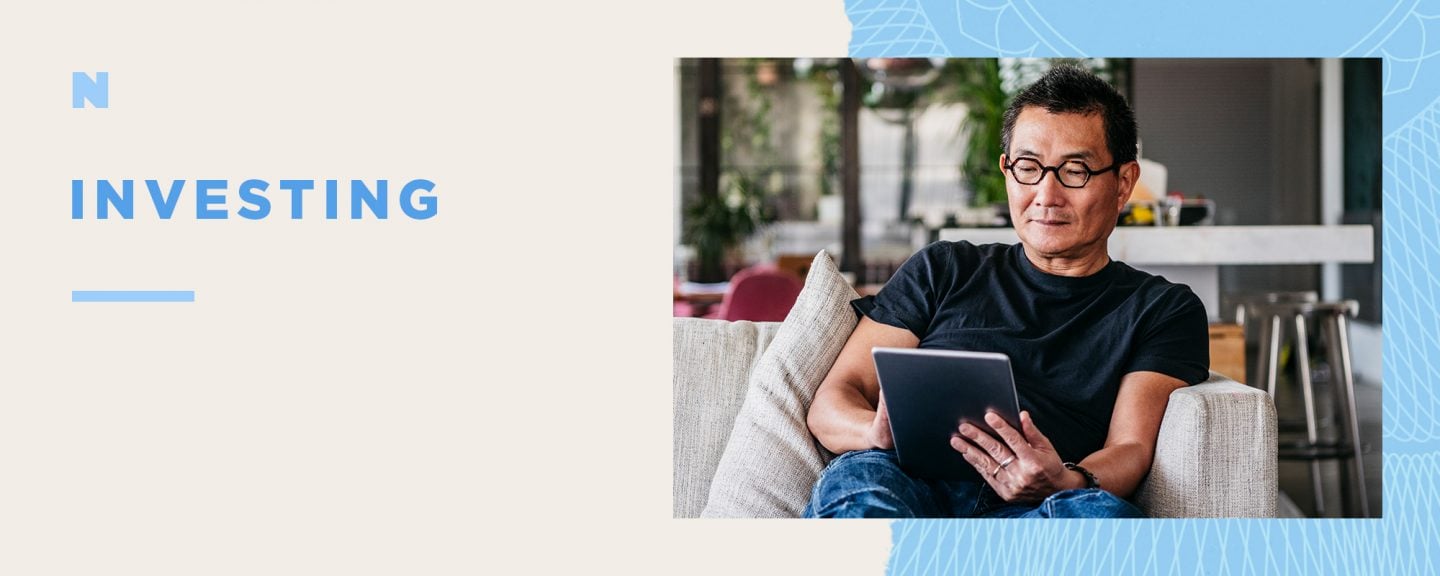
11. Investing
To buy stocks, you’ll first need a brokerage account, which you can set up in about 15 minutes. Then, once you’ve added money to the account, you can follow five steps to find, select and invest in individual companies.
Retirement accounts
An individual retirement account, or IRA, is a tax-advantaged investment account individuals use for retirement savings. Contributions to some IRAs may be tax-deductible, or withdrawals may be tax-free.
There are several types of IRAs, such as traditional, Roth, SEP or SIMPLE. IRAs are available from banks, robo-advisors or brokers.
What is an individual retirement account (IRA)?
Investing in a brokerage account
A standard brokerage account, or taxable account, offers no tax advantages for investing through the account — in most cases, your investment earnings will be taxed.
On the plus side, that means there are very few rules for these accounts: You can pull your money out at any time, for any reason, and invest as much as you’d like.
Mutual funds and exchange-traded funds
Mutual fund investors own shares in a company whose business is buying shares in other companies (or in bonds, or other securities). Mutual fund investors don’t directly own the stock in the companies the fund purchases, but they do share equally in the profits or losses of the fund’s total holdings — hence the “mutual” in mutual funds.
Exchange-traded funds can be traded like individual stocks but offer the diversification benefits of mutual funds. In many cases, ETFs will have a lower minimum investment than index funds.
Fixed-income investments
Fixed-income investments, such as government and corporate bonds, can provide a steady, predictable source of income, often with lower risk than other investments.
Along with stocks and stock mutual funds, fixed-income investments make up the backbone of a well-diversified investment portfolio.

12. Starting or running a business
From loans to lender reviews, we'll help you connect with the right resources so you can take care of business:

13. Travel
Dreaming of a vacation? NerdWallet has the tools and tips to help you compare and find the smartest travel credit cards and loyalty programs to make your next trip as budget-friendly as possible.
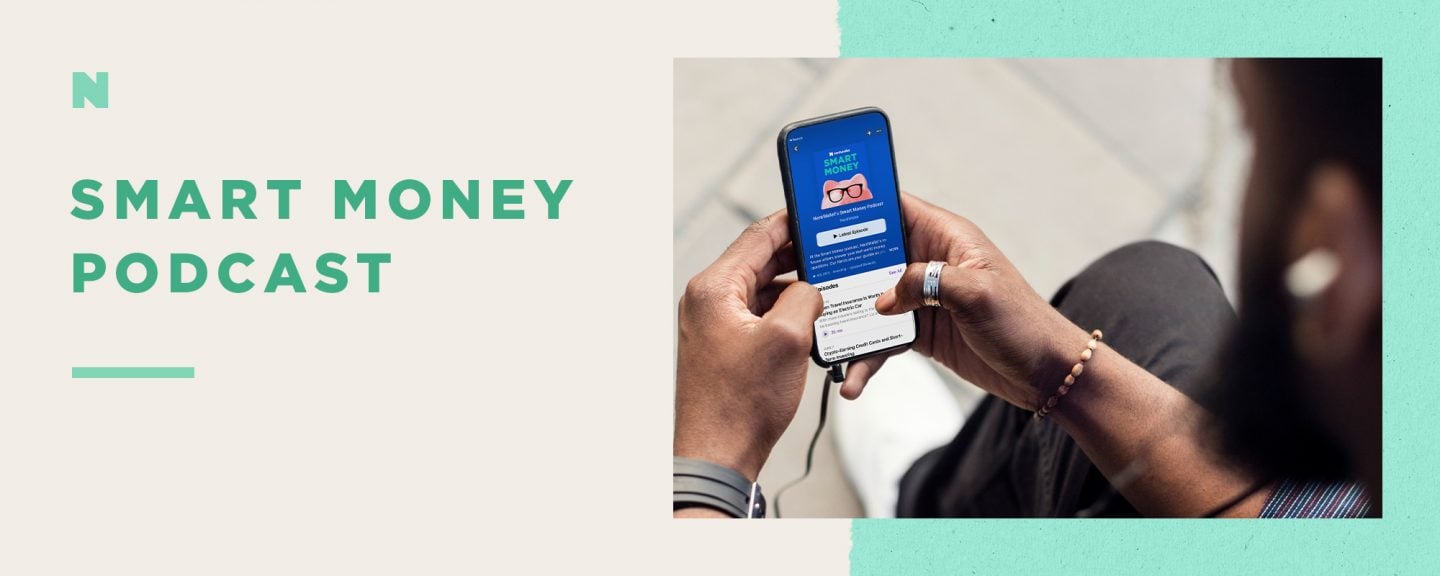
Learn more about personal finance
Want to learn more about every facet of personal finance mentioned above? You can listen to interesting and informative conversations about money matters anytime you like with NerdWallet's podcast.
The NerdWallet Smart Money podcast
Your money questions, answered. That's the Smart Money podcast from NerdWallet. Have a money question? Ask one of the Nerds. Text or call us at 901-730-6373 or email [email protected], then subscribe and listen to the podcast.
